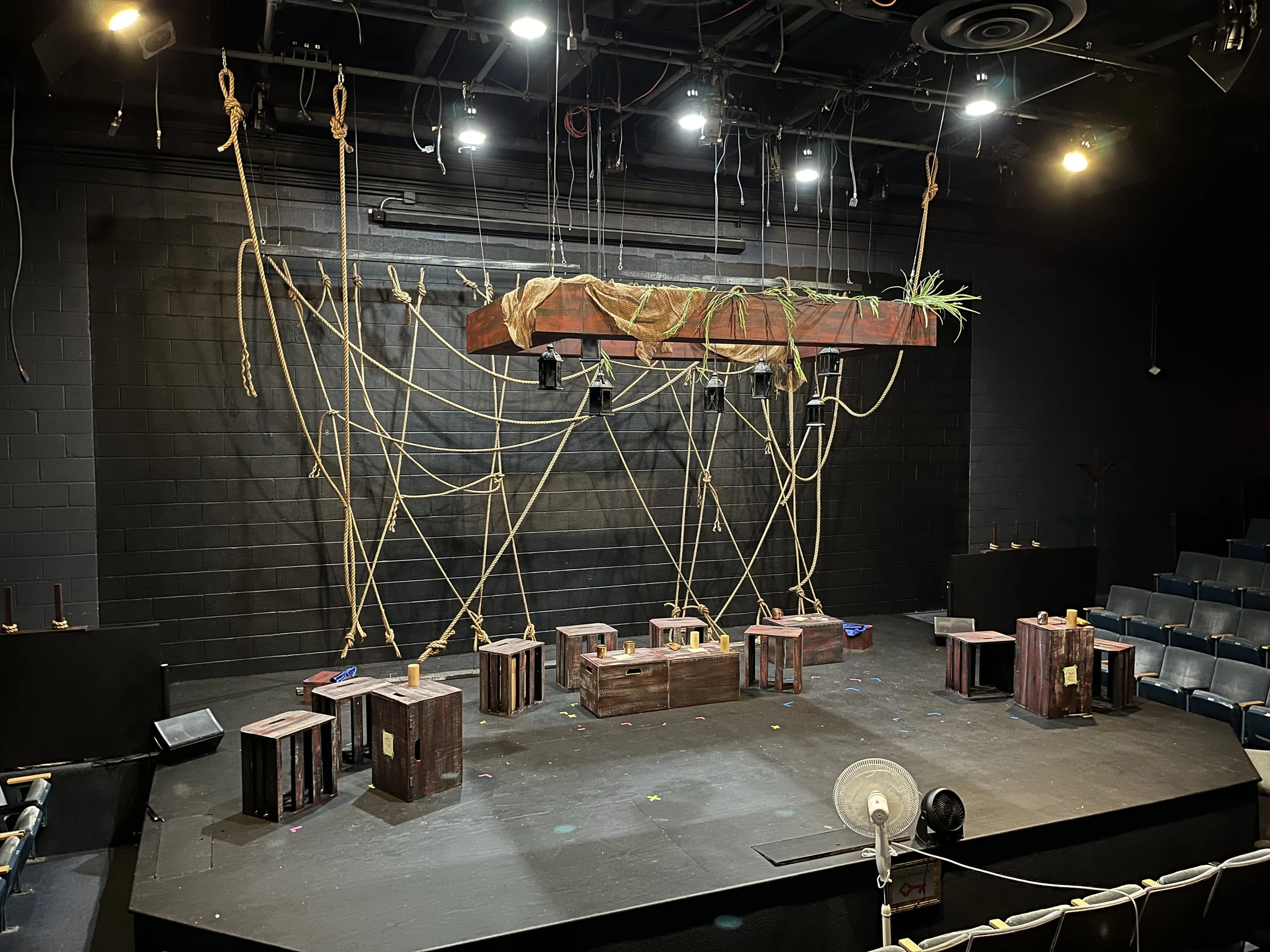This process has allowed me the opportunity to dive deeper into giving the audience a subconscious viewing of the world I want them to see. Please indulge me as I dive into a few aspects of this now.
Read MoreOpening is quickly upon us. The form of our play is crystallizing as we refine acting moments, blocking, transitions, dialect work, etc. This weekend we moved into tech where we added the set, lighting, sound, and eventually costumes. The speed at which we are moving, after months of play and experimentation, feels daunting at times. For me, this drums up some big hairy feelings of “imposter syndrome” as we get closer to sharing our work with an audience. It’s been a while since I’ve performed live for an audience as much of my pandemic life has been spent teaching. The pressure to prove that I can practice what I teach feels ever present. Can I stay present, grounded, and connected to my body and voice while inhabiting the technical demands of the play?
Read MoreI believe that each of us has a dream placed in our hearts. I'm not talking about wanting to win the lottery (though a PowerBall win of $500 million does sound nice). That kind of fantasy comes from a desire to escape our present circumstances, not to pursue a heartfelt vision. I'm talking about a dream deep inside that speaks to the very soul. It's the thing we were born to do. It draws on our talents and gifts. It appeals to our highest ideals
Read MoreAlthough we are a little over a week out from opening Our Country’s Good, I feel as though I personally have spoken enough on my excitement for this show and how elated I am for everyone to see our work of art. Instead, today I would love to talk about the challenges, unique experiences, and why I like working with an itinerant theater company like Seat of the Pants.
Read MoreOn Wednesday night, we had our first runthrough.
During that runthrough, we all felt a lot of different things; it's a definite turning point in the rehearsal process. It was our designer run, and - of course - as a result, a lot of our feeling of ease melted away as we suddenly had people in the room and were focusing on a million things.
But the next day we started our rehearsal with a vocal warm up and we had a little powwow, talking things out.
Activating our bodies, activating our breath. Grounding, stretching vocally, and then moving right into staccato legato, an exercise that embodies every aspect of the Chekhov technique.
During that process, during that exercise, something happened for me.
I don’t know about the rest of our ensemble, but I’m at that stage of rehearsal where I’m struggling to piece it all together. I’ll admit it’s incredibly frustrating. It feels like a “fake it till you make it” situation - a phrase I’ve never particularly liked.
Read MoreWe had the privilege of seeing OCG on its feet for the first time on Wednesday night and the experience stirred up some emotion that I hadn't completely prepared for when I walked in the door.
Read MorePolarity is a term that has been used again and again throughout this process. While I have not been a student of the Michael Chekhov Technique for long, my understanding is that usually we are using this word to help give dynamics and depth to a scene, a moment, or a gesture. Bringing to mind the active idea of being pulled, in multiple directions - or crafting a scene with contrasting tempos, atmospheres, etc. - living at both extremes simultaneously and seeing what that generates.
Read MoreThis exercise was introduced to me by my mentor and former teacher, Shelley Delaney.
She too likely stole it from someone else. Primarily, it is used for texts that involve the “long thought” or extended, persuasive arguments (think: Shakespeare or the Greeks). OUR COUNTRY’S GOOD has no shortage of long thoughts or persuasive arguments. I have found this exercise useful to determine to what part of the receiver a speaker might be appealing










